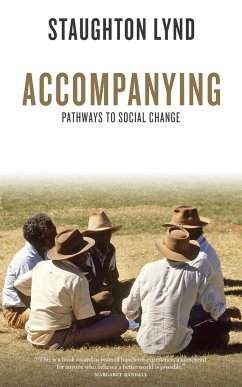To better understand the impact of social movements in recent years, this analysis distinguishes strategies of social change into two parts: organizing, which is characteristic of the 1960s movement in the United States, and accompaniment, which was articulated by Archbishop Oscar Romero of El Salvador. Both are valuable tools for understanding and promoting social movements; in accompaniment, the promoter of social change and his or her oppressed colleague view themselves as two experts, each bringing indispensable experience to a shared project.
Hinweis: Dieser Artikel kann nur an eine deutsche Lieferadresse ausgeliefert werden.
Hinweis: Dieser Artikel kann nur an eine deutsche Lieferadresse ausgeliefert werden.








